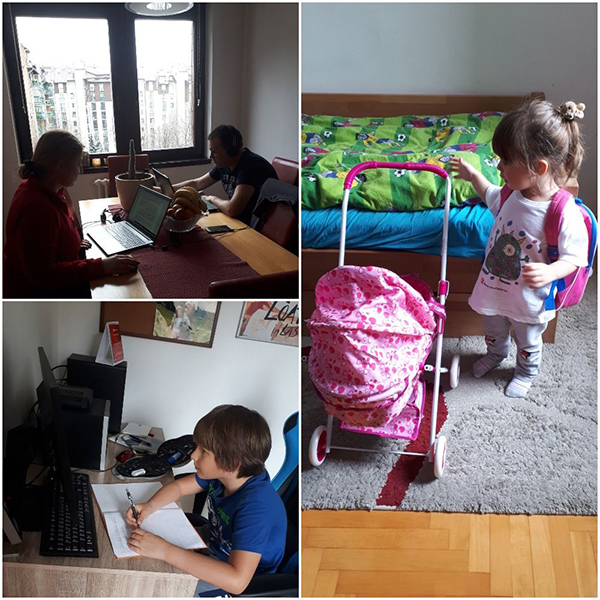 North West Balkans
North West Balkans
Languages
How to preserve the mental health of parents in a situation of isolation?

Today we spoke with Tanja Tankosic Girt, a family system psychotherapist from the Association for Systemic Practice and Therapy, about how parents are under great pressure during this period of isolation, because apart from their work responsibilities, they also care about their children, their needs, their school responsibilities and everything else. Tanja gave us some recommendations on how to get parents organized and take care of their mental health so that they do not experience burnout.
"The current situation that requires from all of us to completely change our lifestyles, habits and routines is most evident through the isolation in our homes. We are separated from our loved ones, our jobs, the places we like to stay when we are not in our own home. A state of uncertainty, accompanied by many unpleasant emotions such as fear, anxiety, worry, nervousness, caution, sadness and sometimes anger, currently, to a large extent, shape our family system, affect relationships, communication, the ways we organize daily activities and models of how we can, within the family, support one another. Parents are under great strain and pressure. They care for the health of themselves, their parents and their children; take care of their jobs; take care of the day-to-day functioning of their family - do children finish their school responsibilities, how can they help...?
More than ever, parental cooperation will be important. Within the family, childcare is carried by the family parent subsystem. Most often it is the parents or one parent who provides the children with everything they need. In order for things to work well within the family and for the needs of the children to be met, it is necessary for parents to share obligations and responsibilities among themselves, and to cooperate, act as a team that is on the same mission. Taking care of children, especially in extraordinary circumstances, is a very challenging task and it is necessary for parents to agree and plan together. Sometimes it happens that we take things for granted - "weren't you suppose to do this today?" Communicate childcare responsibilities and share them with each other.
Most likely it will be necessary to adopt some new "home" rules. The rules that have hitherto been applied within the family, what should and what should not be done, who from the household does certain jobs, etc., will not be functional, enforceable or applicable anymore. Parents need to talk about it first among themselves and after agreeing, share it with their children. If by now the son was the one who went to the grocery shop, he obviously can't do that anymore. But what else is it that they can do, how can house chores be redistributed? Who can take on what kind of obligation? Also how we will maintain the routine and structure of the day. Children are not on school break, they equally need sleep and rest and it is equally useful to try to have the same habits of getting up, working on school work, helping with house work, leisure time and having fun and the like.
Children will be sorely lacking in companionship during their isolation. Parents will sometimes feel that they need to be company, a source of entertainment, and friends to their children. This can be a very difficult and thankless task. Although we can spend part of the day in joint activities, parents cannot and should not replace the presence of friends. Children of adolescence, but also younger, also need intimacy and to spend some time "alone". Support them to stay in contact with their friends and do not expect them to be satisfied only with your company.
Parents need a break from their daily worries as well as parenting. Devote at least part of the day to yourself and your needs. By doing so, you are not selfish, but take care of yourself. When children are busy with their responsibilities or having fun, do something for yourself or with your spouse. Share how your day went, what you thought about, what you did without having to be a parent. Share your concerns or fears. Allow yourself to feel down, but allow yourself small "luxuries". Take care of your partner and listen to him or her - you're on a joint mission."